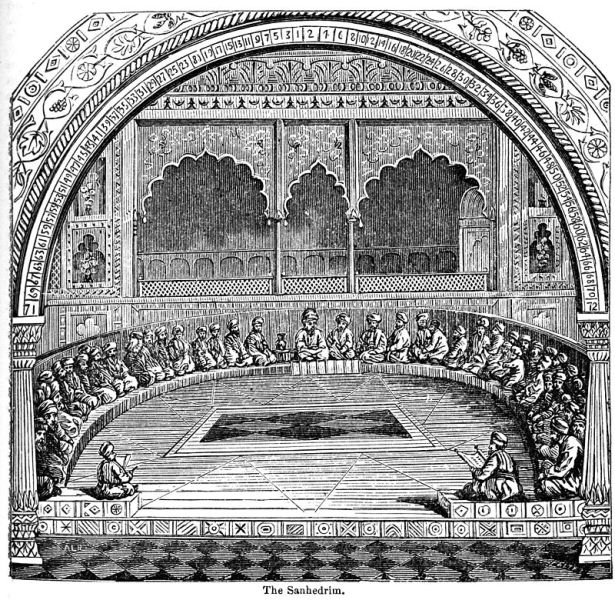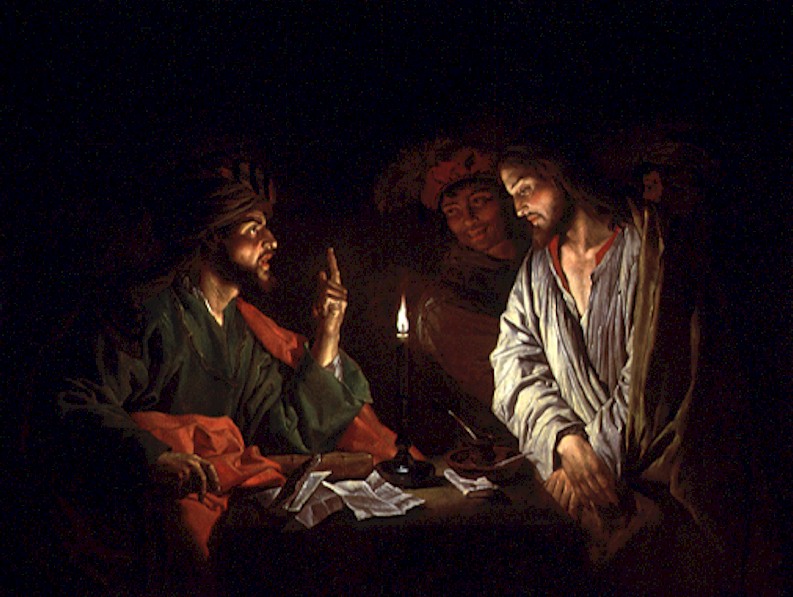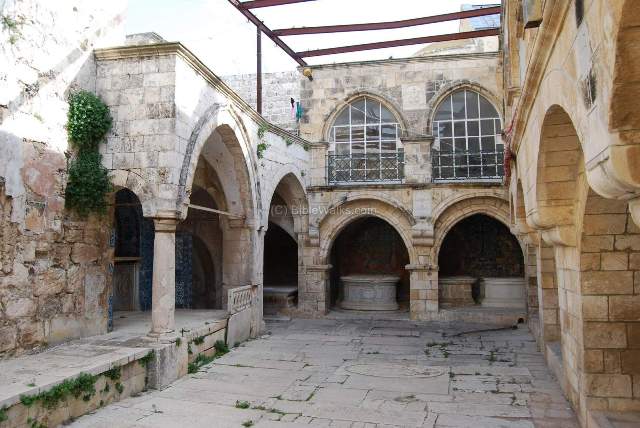Мы продолжаем напряженно работать, чтобы улучшить наш сайт и перевести его на другие языки. Русская версия этой страницы еще не совсем готова. Поэтому мы представляем здесь пока английскую версию. Мы благодарим вас за понимание.
Иосиф Каифа
Context
Joseph Kaifa is the high priest of the Jews and chairman of the Sanhedrin. This court has sentenced Yeshua Ha-Nozri to death, and the court order has to be ratified by Pontius Pilate. Four scoundrels have to be executed that day: Dysmas, Gestas, Bar-Rabban and this Yeshua.

Синедрион, рисунок с 1883 года
In honour of the feast of Passover which begins that day, one of them has to be released according to the law and custom. The first two «would not be talked about here», since they had ventured to incite the people to rebel against Caesar. So the procurator wished to know which of the two criminals the Sanhedrin intended to set free: Bar-Rabban or Ha-Nozri. The Sanhedrin asks that Bar-Rabban be released. Pilate tries to save Ha-Nozri, but Kaifa shows his skills in manipulating negotiations. Bar-Rabban gets away with it.

Иисус и Каиафа (Маттиас Стом)
The Sanhedrin was the Jewish judicial council under Roman rule. The Sanhedrin followed the jewish legislation under Roman supervision. It had no direct authority to sentence to death except in case of desecration of the temple. That's why their death penalty for Jesus of Nazareth had to be ratified by Pilate. The Sanhedrin was presided by the high priest.
The כהן גדול [kohen gadol] or high priest is in Judaism the leader of the כֹּהֲנִים [kohaniem] or priests who perform the temple service. The Jewish historian Titus Flavius Josephus (37-100), quoted by Mikhail Berlioz in chapter 1 of The Master and Margarita, is generally regarded as the most reliable historical source when it comes to the high priest Joseph Kaifa, also called Caiaphas, Qajjafa or Caiphas.
In his work Antiquities of the Jews, written between 79 and 94, Flavius Josephus mentioned that Caiaphas was appointed high priest in the year 18 by Valerius Gratus, the predecessor of Pontius Pilate as the prefect of Judea.
After Valerius Gratus had appointed and dismissed again three different high priests in a period of two years, Joseph Caiaphas ensured an unprecedented stability. Presumably it was due to his close ties with the Roman administration, especially with Pontius Pilate, that Caiaphas held the office of high priest for not less than eighteen years, which was exceptionally long. The downside, however, was that when Pilate was disgraced because of his violent action against the Samaritans, the fate of Caiaphas was also decided: the Syrian governor Lucius Vitellius (5BC-51) deprived him of his office in the same year that Pilate was called back to Rome.
The Palace of Caiaphas, where Yehuda went to get his money in the novel, was on Mount Zion. On top of the ruins of this palace, the Church of Saint Peter in Gallicantu or the Church of the crowing rooster was built in 1939. Gallicantu is Latin for cock's-crow. The church has got that name because, according to the canonical gospels, the apostle Peter would have denied Jesus of Nazareth three times at this place, and a cock would have crowed three times.

Дворец Каиафы
Differences with the bible
In the caninical gospels it's not Pilate nor the Sanhedrin deciding on whom had to be set free, but the people of Judea, inspired to this by the high priests an the elders. Matthew 27:20 - «The chief priests and the elders persuaded the crowds to ask for Barabbas but to destroy Jesus».
In the novel Bulgakov let Kaifa make the decision, and he does it in his own style. But he's careful: he makes sure not to speak in the first person as far as Yeshua's destiny is concerned, he always uses the third person. Bulgakov however doesn't blame the whole of the Jewish people, but the leaders who manipulated the people to keep their privileges. But Pilate warns Kaifa: "Know, then, that from now on, High Priest, you will have no peace! Neither you nor your people".
In the caninical gospels he says this to the entire people: Matthew 27:23 - «But he said, Why? What evil has he done? They only shouted the louder, Let him be crucified!» 27:24 - «When Pilate saw that he was not succeeding at all, but that a riot was breaking out instead, he took water and washed his hands in the sight of the crowd, saying, I am innocent of this man's blood. Look to it yourselves.» 27:25 - «And the whole people said in reply, "His blood be upon us and upon our children.»




